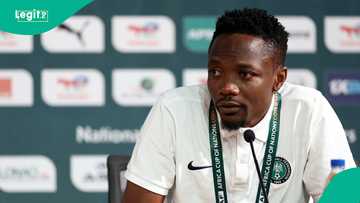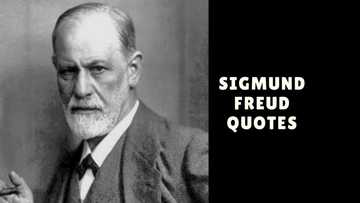Does the Christian Faith Tolerate Questions? By Father Anthony Akinwale
Editor's note: In this piece, Father Anthony Akinwale, OP, a Professor of Systematic Theology and Thomistic Philosophy, examines the relationship between intellectual inquiry and religious belief, questioning the rise of populist preaching and its impact on how Christianity is understood in contemporary Nigeria.
CHECK OUT: Education is Your Right! Don’t Let Social Norms Hold You Back. Learn Online with LEGIT. Enroll Now!
A question was put to me: whether those who repudiate Christianity do so out of “intellectual deconstruction” of Christianity or out of spiritual crisis. In other words, are people repudiating Christianity because they have undergone intellectual growth or because they are undergoing a spiritual crisis?

Source: Getty Images
But there is a philosophical problem surrounding the use of the term “deconstruction” in the question as originally formulated. Intellectual growth is attained when one attains knowledge. But knowledge is not acquired by deconstruction. It is acquired by building on the foundation of previously acquired knowledge.
In concrete terms, whoever wishes to know must ask the right questions about previously acquired knowledge. Previously acquired knowledge raises questions that propel the human intellect into a search for yet-to-be-acquired knowledge.
Intellectual growth, not only in matters of religion, but in every academic discipline, and indeed in every existential matter, comes about when the right questions are raised and when appropriate answers are found. Thus, intellectual growth does not come from “deconstruction”, a term whose meaning philosophers do not seem to agree on. Intellectual growth comes from asking the right questions. Intellectual growth means: one knows the right questions to ask, one knows where to look for the answers, and one is able to identify and comprehend the right answers.
There are those who believe, erroneously, that you cannot raise questions and still be a believer, that religion promotes zero tolerance of logic and forbids rational thinking. I am sometimes asked: How can you be a Catholic priest and be a philosopher? But the history of Christianity, when carefully studied, debunks such mischaracterisation of religion. History shows that some of the greatest believers were also some of the greatest philosophers.
Great Christian thinkers like Justin Martyr, Origen, Irenaeus, Augustine of Hippo, and Thomas Aquinas, to mention but a few, brought faith and reason together. They were philosophers. Anselm of Canterbury spoke of faith-seeking understanding. Before them, the First Letter of Peter in the Bible already said to newly converted and baptized Christians:
“Always have your answer ready for people who ask you the reason for the hope that you have” (1 Peter 3:15).
While the Protestant Reformation led by Luther held on to a principle of faith alone, that is, faith without reason, Enlightenment philosophers espoused reason alone, that is, reason without faith. The Catholic tradition, however, following the Christian thinkers I have just mentioned, speaks of faith and reason. Faith without reason will make us fanatics and or fundamentalists. Reason without faith will make us atheists or agnostics. Fanatics and fundamentalists are either unwilling to have or are incapable of having an intellectual engagement with religion. They end up being manipulative and or intolerant in matters of religion. This is what populist Christianity is promoting in Nigeria. It is evident in the way venerable texts of the Bible are copiously quoted in sermons but repeatedly misinterpreted and manipulated for the self-seeking agenda of the preacher. It is rooted in another principle of the Reformation that the Bible alone is sufficient in interpreting the Bible. It is a principle that has metastasized into populist preaching in Nigeria. Such abuse of Christianity must be and is being repudiated.

Source: Getty Images
Christianity in Nigeria may be dated before and after the Structural Adjustment Policy. Three decades ago, during the dark days of military rule and the poverty and social dislocation it brought, exemplified in the Structural Adjustment Policy, Nigeria was introduced to the “prosperity Gospel”. The Bible was and is still read and misinterpreted to promote a Gospel of material prosperity. Three decades later, poverty has grown and is still growing in leaps and bounds. That is what some, especially the younger generation, are beginning to question and repudiate.
The problem, however, is not Christianity. The problem is the instrumentalisation of misconstrued and manipulated Christianity by those who, playing on the emotions of the intellectually and materially impoverished, use the Gospel of Christianity to make false promises of material prosperity to victims of bad policies and naked theft of Nigeria’s wealth by her ruling elite.
The Bible says:
“You must love the Lord your God with all your heart, with all your soul, and with all your strength” (Deuteronomy 6:5).
The human person is to relate to God with the totality of his or her being. The soul is the vital principle of activity in living things. This vital principle of activity that the soul is has its powers, and, in human beings, the intellect is one of those powers. By implication, religion must not be separated from the sphere of intelligence.
Religion is a human act, and a human act is an intelligent act. It is therefore healthy and obligatory to make an intellectual inquiry into what religion is, into its origins, iand nto the meaning of religious beliefs. Faith alone is insufficient. Faith calls for understanding. However, questions are questions. They are not convictions. One would go in the wrong direction if he or she were to ask wrong questions and proceed to mistake questions for convictions, especially in matters of religion.
Christianity in Nigeria is misrepresented by those who have refused to apply the good use of intellect in matters of faith. Many of such are pastors and preachers in our land today. They reduce faith to emotionally vain credulity, and many are revolting by repudiating Christianity presented as faith without reason. The Christianity many are repudiating is a Christianity misrepresented, maligned and manipulated. That is why the academic discipline called theology, with a good curriculum, is of vital importance. Theology is for those who seek to understand what they believe. It is not for those who have already concluded that their question is their conviction. A question is a quest for knowledge. It is not knowledge itself.
Populist preaching is not to be mistaken for academic theology, and academic theology is to be differentiated from religious studies because it is faith-seeking understanding. For, while academic theology presupposes faith, religious studies as an academic discipline may be undertaken without the presupposition of faith.
Disclaimer: The views and opinions expressed here are those of the author and do not necessarily reflect the official policy or position of Legit.ng.
Father Anthony Akinwale, OP, is a Professor of Systematic Theology and Thomistic Philosophy at Augustine University, Ilara-Epe, Lagos State.
PAY ATTENTION: Сheck out news that is picked exactly for YOU ➡️ find the “Recommended for you” block on the home page and enjoy!
Source: Legit.ng







